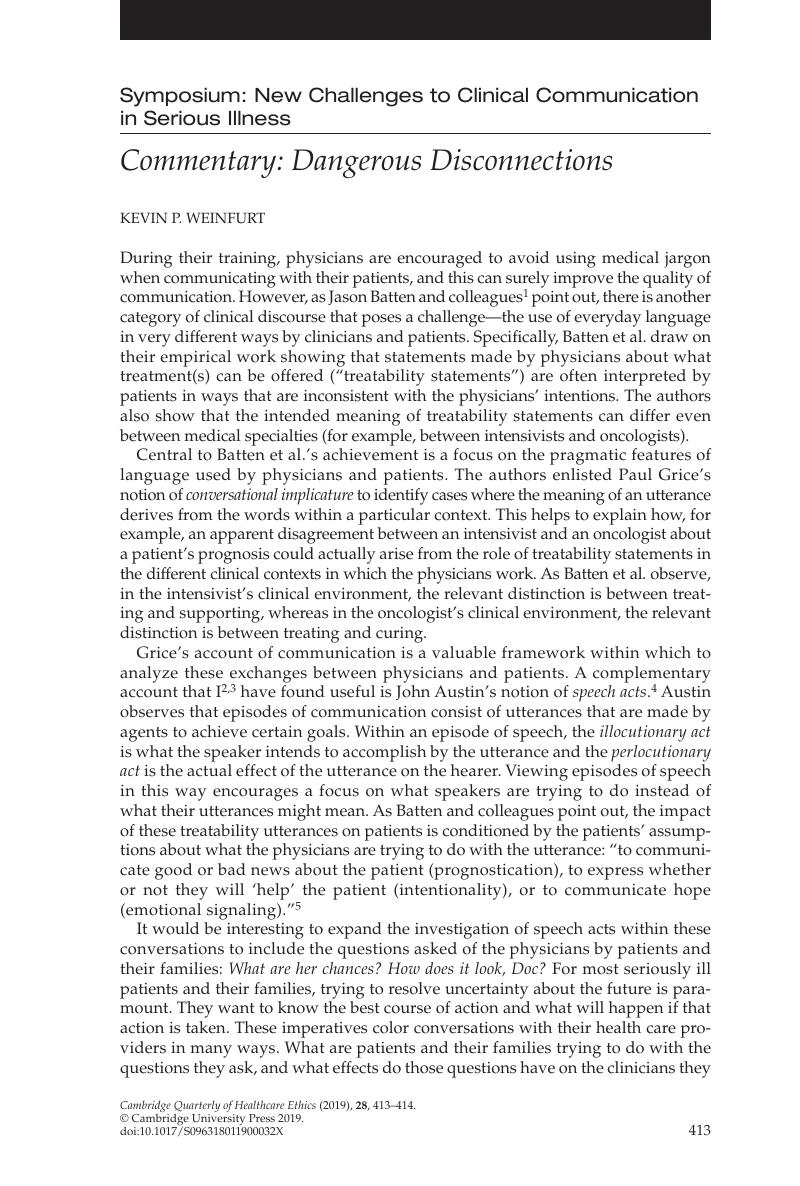Article contents
Commentary: Dangerous Disconnections
Published online by Cambridge University Press: 12 July 2019
Abstract

- Type
- Symposium: New Challenges to Clinical Communication in Serious Illness
- Information
- Copyright
- Copyright © Cambridge University Press 2019
References
Notes
1. Batten, JN, Wong, BO, Hanks, WF, Magnus, DC. Treatability statements in serious illness: The gap between what is said and what is heard. Cambridge Quarterly of Healthcare Ethics 2019;28(3):394–404.CrossRefGoogle Scholar
2. Weinfurt, KP, Sulmasy, DP, Schulman, KA, Meropol, NJ. Patient expectations of benefit from phase I clinical trials: Linguistic considerations in diagnosing a therapeutic misconception. Theoretical Medicine and Bioethics 2003;24(4):329–44.CrossRefGoogle ScholarPubMed
3. Weinfurt, KP. Discursive versus information-processing perspectives on a bioethical problem. Theory & Psychology 2004;14(2):191.CrossRefGoogle Scholar
4. Austin, JL. How to do Things with Words, 2nd ed. Cambridge: Harvard University Press; 1962.Google Scholar
5. See note 1, Batten et al.
6. Fried, TR, Bradley, EH, O’Leary, J. Prognosis communication in serious illness: Perceptions of older patients, caregivers, and clinicians. Journal of the American Geriatric Society 2003;51(10):1398–403.CrossRefGoogle ScholarPubMed
7. White, DB, Engelberg, RA, Wenrich, MD, Lo, B, Curtis, JR. The language of prognostication in intensive care units. Medical Decision Making 2009;30(1):76–83.CrossRefGoogle Scholar
8. Kim, SY, Wilson, R, de Vries, R, Kim, HM, Holloway, RG, Kieburtz, K. “It is not guaranteed that you will benefit”: True but misleading? Clinical Trials 2015;12(4):424–31.CrossRefGoogle ScholarPubMed
- 1
- Cited by


